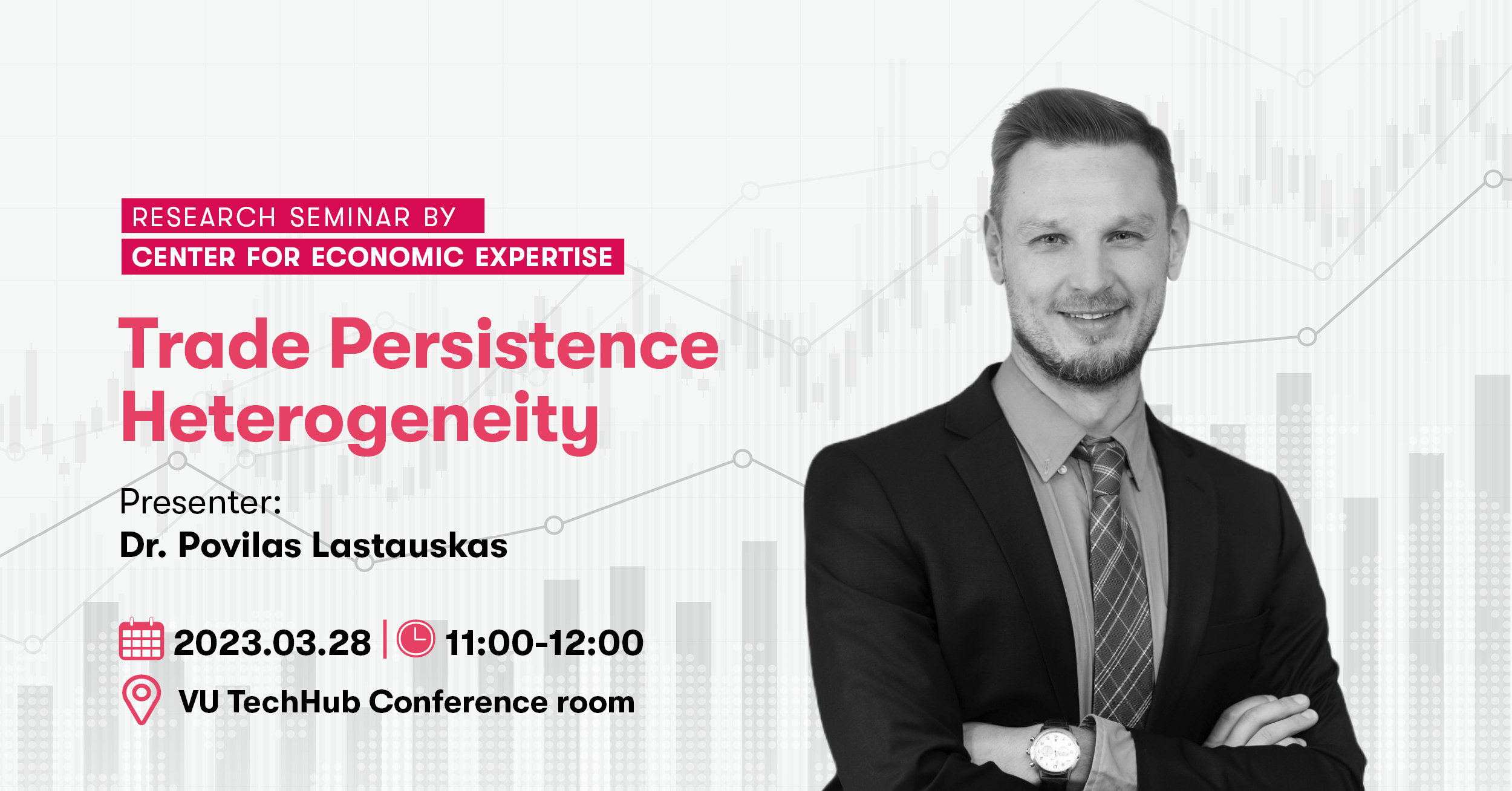We are delighted to invite you to attend the research seminar organized by Center for Economic Expertise which will take place on Tuesday, March 28 in VU TechHub Conference room. During the seminar Dr. Povilas Lastauskas will present the topic „Trade Persistence Heterogeneity“.
Abstract: International trade flows are volatile and imbalanced. We develop a theory of learning by importing, which generates autocorrelated bilateral trade flows that are heterogeneous across different country pairs. Our framework gives rise to a dynamic gravity equation that nests popular alternatives in the literature, namely a homogeneous parameter dynamic version with zero aggregate trade imbalances and a popular static gravity model. Not only does our model improve accuracy of trade flows predictions, but it is also consistent with the empirically relevant declines and rapid recoveries of trade flows in response to shocks, thereby escaping what we call the "trade persistence puzzle". We also show that small asymmetries in the learning-by-importing externality across countries are sufficient to create bilateral and multilateral trade imbalances endogenously, which are important both theoretically and empirically.
Presenter: Dr. Povilas Lastauskas, the Principal Investigator of the Baltic Research Program funded project „Micro-level responses to socio-economic challenges in face of global uncertainties“ at Vilnius University, Assistant Professor in Applied Macroeconomic Analysis at the Queen Mary University of London, Bye-Fellow in Economics at Homerton College, University of Cambridge, and initiator of the Quantitative Economics program at VU FEBA.
Topic: „Trade Persistence Heterogeneity“. Authors of the paper: Mariarosaria Comunale (International Monetary Fund), Justas Dainauskas (London School of Economics and Political Science), Povilas Lastauskas (Vilnius University & Queen Mary University of London).
Time and venue: 28 March, 11.00-12.00, TechHub Conference Room (2nd floor).
